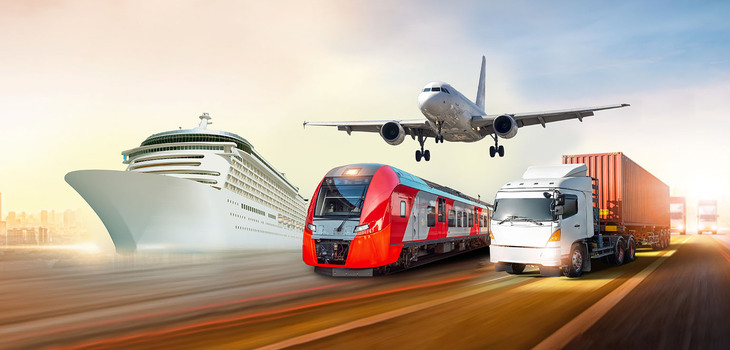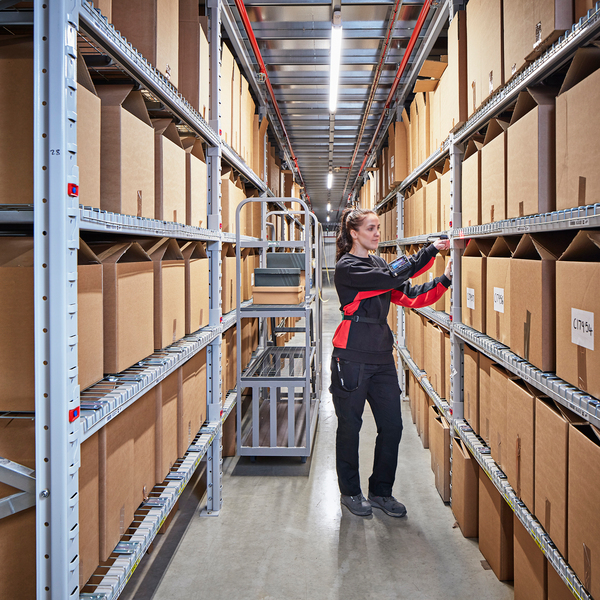Types of Logistics Providers in Transport Logistics: A Comprehensive Guide

Transport logistics is a complex industry that involves transporting goods and materials via various modes of transport—from road to rail to air and sea transport. Within this industry, different logistics providers offer a wide range of services to facilitate the transportation and management of goods. This piece gives an overview of the types of logistics providers in transport logistics.
Types of logistics providers
1. Road transport companies: Road Transport Companies are businesses that move stuff from one place to another using trucks and other vehicles on roads. They're more like the delivery guys you see driving big trucks around town. But these companies are super important because they help move things we need, like food and clothes, to where they're needed. So, they're a big part of how our economy works."
2. Freight forwarders: Freight forwarders are like the matchmakers of shipping; they connect people who need to send stuff with the companies that move it. They handle everything from booking trucks to sorting out paperwork and insurance. They ensure that stuff gets where it needs to go hassle-free.
3. Combined transport companies offer transport services that include more than one mode of transport, e.g., road, rail, and sea. Inland shipping companies transport goods across rivers, canals, and other waterways.
4. Ocean shipping lines and seaports are coastal transport hubs providing maritime transport networks access. These types of logistics providers mainly transport goods by sea, either within a country or internationally, so they're great in water-bound areas.
5. Inland ports are similar to maritime shipping because landlocked countries mainly use them. Their standard transport hubs are rivers and canals that provide access to seaports and other transport networks.
6. Airlines transport goods by air within a country or internationally. Airports are transport hubs that provide access to air transport networks.
Air cargo industry services include cargo clearance, customs clearance, and documentation for air cargo. Express, parcel, postal, and courier services deliver small packages and documents, often under time pressure.
7. Heavy lift and transshipment. Heavy lift and project cargo companies provide transportation services for oversized and heavy goods that require special handling. A good example is the transportation of heavy industrial machines and turbines.
Also, transshipment, warehousing, and cargo handling companies provide services such as loading and unloading, sorting and storing goods. The type of goods transported in transshipment varies and is not specific to only equipment.
8. E-commerce service providers and fulfillment companies offer online order fulfillment, warehousing, and shipping services for e-commerce companies.
9. A logistics provider offers various logistics services such as transportation, warehousing, and distribution.
10. Charter brokers arrange charter flights and other transport services for customers.
11. General sales agents act as intermediaries between carriers and customers, often specializing in a particular region or market.
12. Organizations, trade associations, and economic development agencies provide support and networking opportunities for companies in the transportation and logistics industry.
13. Banks, insurance companies, customs, customs clearance, and toll companies provide various financial and administrative services related to transport and logistics.
14. Leasing and rental companies offer equipment and vehicles for leasing or rental to companies in the transportation and logistics industry.
15. Personnel leasing and personnel services companies provide personnel and recruiting services to companies in the transport and logistics industry.
16. Training providers offer courses and training programs for careers in transportation and logistics.
17. Gas station credit card, service card, fuel, and AdBlue technology providers provide services and products related to fuel and vehicle maintenance to companies in the transportation and logistics industry.
18. Infrastructure providers offer infrastructure services such as road, rail, and port facilities.
19. Logistics real estate companies provide real estate solutions such as warehouses and distribution centers for companies in the transportation and logistics industries.
20. Security services provide security solutions for transporting and storing goods.
21. Truck model and promotional products companies provide branded goods to companies in the transportation and logistics industries.

22. Professional and specialty literature companies publish magazines and other transportation and logistics industry publications.
23. Workwear and equipment companies Workwear and equipment companies are another type of logistic provider. They make work clothes and gear and provide clothing and equipment for people who work in transportation and logistics. They ensure workers have durable, high-quality garments and gear that fit the strict demands of their jobs. This includes things like reflective vests, helmets, special shoes, and tools designed to keep workers safe and comfortable while they do their jobs in transportation and logistics.

Logistics in Businesses
The global business logistics and transport industry is integrating, and the different types of logistics providers play a crucial role in its smooth functioning. This group includes many service providers, including road transport companies, trucking companies, railways, Freight Transport, combined transport organizations, inland waterway companies, maritime shipping lines, airlines, and e-commerce logistics services for business.
Exhibitors in this category at Transport Logistic aim to provide efficient and reliable logistics solutions that help their customers optimize their supply chains, reduce costs, and improve their companies' overall performance.
With technology constantly improving and the increasing demand for faster and more efficient logistics services, the transportation and logistics industry will likely continue to grow and develop in the coming years.
FAQ

1. Are there companies specializing in transporting specific things like food that need to stay cold
Some companies focus only on moving certain goods, such as food that needs refrigeration or hazardous materials that require strict attention..
2. How do companies handle changes in demand for shipping during busy times like holidays?
Companies might hire more workers, rent extra trucks, or work with other companies to handle more packages when many people are shipping things.
3. What are companies doing to be more eco-friendly when shipping things?
Companies use trucks that run on different fuels, plan better routes to save gas and use new technology to make shipping more efficient. Some are also working with environmental groups and doing things to make up for the pollution they create.
4. Are new technologies changing how things are shipped, and how are older companies reacting?
New technologies like computers and self-driving cars are making shipping better and cheaper. To stay in business, older companies are updating their technology, collaborating with new companies, and trying different approaches.
5. Can companies find ways to deliver things to hard-to-reach places?
Companies can use special trucks or work with local businesses to deliver packages to faraway or difficult-to-reach places. They might also use drones or self-driving cars to deliver things where people cannot go.
Popular Articles

Your Ultimate Guide to Planning a Successful Home Renovation Projec...

Germany States - How To Choose For Life

Preparing for the Big Move: Essential Steps for International Reloc...

AI-Powered Moving Cost Calculator: Get Accurate Estimate Fast

Commercial Electrical Maintenance: Ensuring Safety and Efficiency

How to find an apartment for expats in Germany: Ultimate Guide

